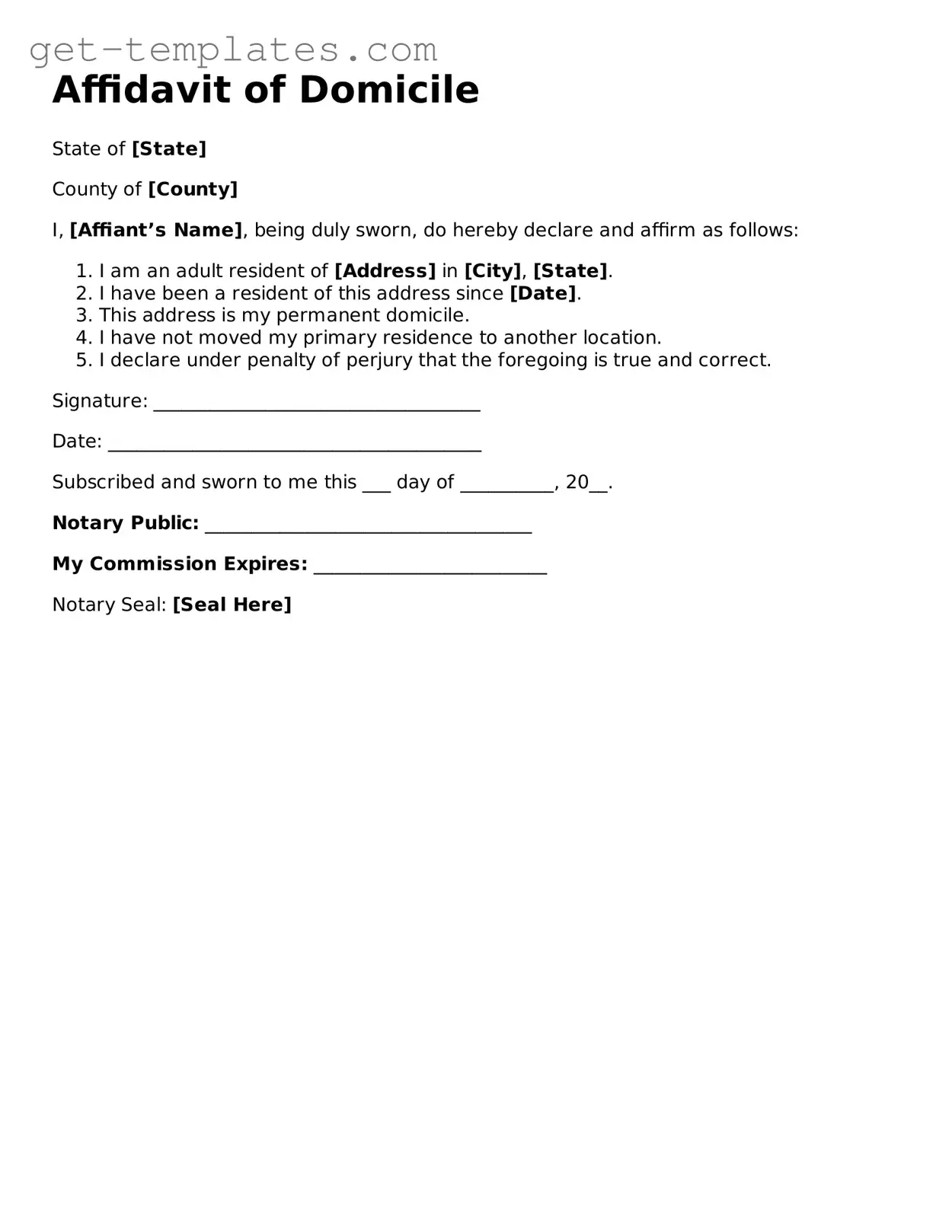What is an Affidavit of Domicile?
An Affidavit of Domicile is a legal document that confirms an individual's permanent residence or domicile. This form is often used in estate matters, particularly to establish where a deceased person lived at the time of their death. It helps clarify the jurisdiction for probate proceedings and ensures that assets are distributed according to the deceased's wishes.
Who needs to file an Affidavit of Domicile?
Typically, the executor or administrator of an estate files the Affidavit of Domicile. If someone passes away and leaves behind assets, this affidavit helps to confirm their last known residence. It's crucial for anyone involved in the estate settlement process, including beneficiaries and legal representatives.
The Affidavit of Domicile generally requires the following information:
-
The name of the deceased.
-
The address where the deceased lived at the time of death.
-
The date of death.
-
The relationship of the affiant (the person signing the affidavit) to the deceased.
Additional details may be needed depending on the specific requirements of the state where the affidavit is being filed.
How do I complete an Affidavit of Domicile?
To complete an Affidavit of Domicile, follow these steps:
-
Gather necessary information about the deceased, including their full name, address, and date of death.
-
Obtain a blank Affidavit of Domicile form, which can often be found online or through legal offices.
-
Fill out the form accurately, ensuring all required fields are completed.
-
Sign the affidavit in the presence of a notary public, who will verify your identity and witness your signature.
After completing these steps, you can file the affidavit with the appropriate probate court or financial institution, as needed.
Is the Affidavit of Domicile the same as a will?
No, an Affidavit of Domicile is not the same as a will. While a will outlines how a person's assets should be distributed after their death, the Affidavit of Domicile serves a specific purpose in confirming the deceased's residence. Both documents play important roles in the estate planning and settlement process, but they serve different functions.
Do I need a lawyer to prepare an Affidavit of Domicile?
While it's not mandatory to hire a lawyer to prepare an Affidavit of Domicile, it can be beneficial. If the estate is complex or if there are disputes among heirs, legal advice may help ensure that the affidavit is completed correctly and filed appropriately. For simpler cases, many individuals successfully prepare and file the affidavit on their own.
What happens if I don't file an Affidavit of Domicile?
If you fail to file an Affidavit of Domicile when required, it can lead to complications in the probate process. Without this affidavit, there may be delays in settling the estate, and beneficiaries could face challenges in accessing the deceased's assets. In some cases, it could even lead to legal disputes among heirs.
Can an Affidavit of Domicile be revoked?
An Affidavit of Domicile can be revoked or amended if new information comes to light or if the circumstances surrounding the deceased's residence change. However, this typically requires the filing of a new affidavit or a formal legal process. It's important to consult with a legal professional if you believe changes are necessary.

